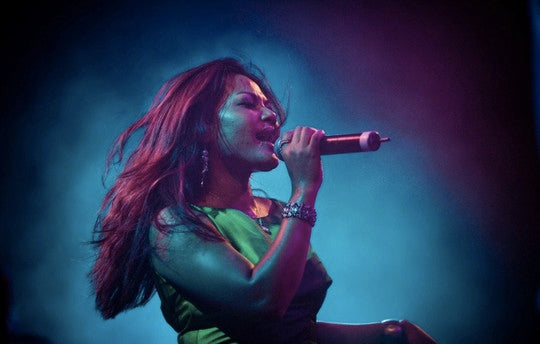Your Cart is Empty

In a recent BBC interview [34:46-43:35] Chhom Nimol of the Cambodian-American psychedelic rock band Dengue Fever, tells about growing up in a refugee camp under the Khmer Rouge totalitarian dictatorship.
She discusses the musical influences of the forgotten Cambodian songs in the 1960's and '70s which were banned under the vicious Khmer Rouge regime. Under this violent state of government musicians, amongst other intellectuals, were sentenced to be arrested, tortured and eventually executed. Mass genocides of educated musicians including those who simply wore glasses was commonplace for almost 30 years.
This Rough Guide celebrates the mind bending music from the 1960s and 1970s, with some of the best known artists of the day almost erradicated during the Khmer Rouge.
Nimol further paints a bleak picture of frequent slaughters and her life in a Thai refugee camp where she spent her childhood until the war ended. She is moved to tears telling about the first time she heard her sister singing on the radio, both acknowledging that she was alive, and also describing the song as angelic in beauty.
Despite the adversity of musicians and other intellects in Cambodia at the time, after the civil war ended, Nimol was inspired and encouraged to pursue a career in singing. The purity and heavenly quality of her voice eventually earned her the title of Best Female Singer in Cambodia (1997) as a landmark achievement. Since then, Nimol has built her career with the band Dengue Fever (Zac Holtzman, Ethan Holtzman, Senon Williams, David Ralicke & Paul Smith). Notably receiving numerous critical accolades, touring internationally and recording seven studio albums since 2001. The most recently recorded album released earlier this yearThe Deepest Lake, is yet another account of virtuosity and deep musical insight from Chhom Nimol and Dengue Fever.
Dengue Fever live performance and interview discuss the Khmer Rouge: